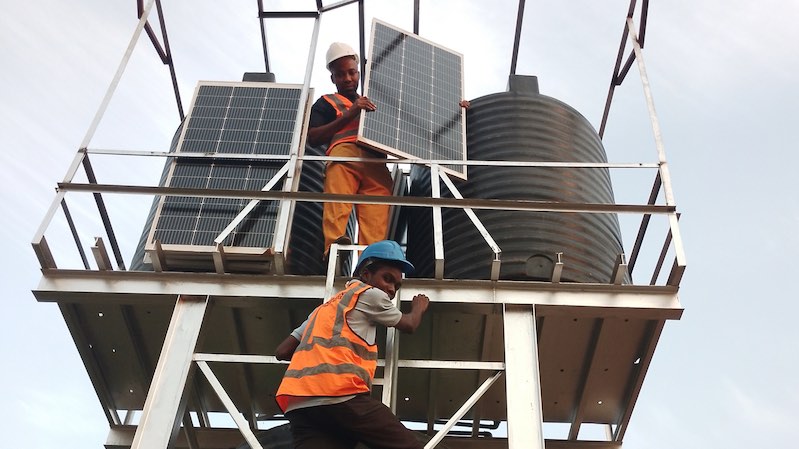Amidst Nigeria’s urgent need for sustainable agriculture and reliable water access, greenhouse farming and solar-powered boreholes have emerged as promising innovations.
Yet while both technologies can drive progress, their large-scale adoption is hampered by a host of difficulties, not least technical and financial challenges.
Boosting yields, testing viability
Greenhouse farming offers a controlled environment for high-value crops like tomatoes, peppers and cucumbers, allowing continuous production all year round and enhancing crop quality.
Reports estimate increased yields per square metre compared with open-field cultivation, depending on design and management.
Nigeria’s annual vegetable demand stands at about 2.3 million metric tonnes yet production delivers roughly 1.8 million tonnes, a shortfall in production that greenhouse technology could close.
One case study in Ogun State backed by a N2.8 million greenhouse investment yielded N1.9 million in just the first harvest and recovered costs within 90 days.
But these successes are exceptions, not the norm. A litany of challenges abounds. Start with the steep upfront costs. A modest greenhouse requires at least N1.9 million. Additionally, many farmers lack expertise in greenhouse crop management, pest control and climate regulation, which eventually lead to inefficiencies or crop failures.
Piling on the woes are logistics and energy costs. Optimal greenhouse conditions often require electricity for cooling or irrigation, which is difficult to sustain in regions with unreliable power and expensive alternatives.
Water security with a solar twist
WaterAid’s April 2025 project installation in Bauchi State provides clean water access to over 4,400 people, outfitting them with two solar-powered boreholes, kiosks and tap islands.
Despite their positive impacts, many of these installations cease functioning over time due to poor maintenance. In some cases, some boreholes are abandoned shortly after commissioning. Others break owing to substandard materials.
Particularly in dry northern regions unregulated pumping and climate variability have lowered water tables, threatening sustainable yield over time. What’s more, inferior materials and solar panels are often stolen or vandalised in insecure areas, making systems unreliable. This can be seen in regions affected by banditry or conflicts.
Both solar boreholes and greenhouse farming in Nigeria share similar obstacles, such as access to finance, technical capacity, climate vulnerability and insecurity.
To leverage these technologies more effectively, Nigeria should consider providing affordable financing—through microfinance, subsidies or installment-based solar payment plans—to lower barriers to entry.
Also, training and technical extension services that build local capacity to operate and maintain greenhouse farms and water systems should be prioritised. Offering lower import duties on greenhouse materials and solar hardware, and clearer incentives for private investors can also help, as with supporting cold chains, roads and farmer aggregation to reduce post-harvest losses and boost returns.
Greenhouse farming and solar-powered boreholes offer long-term solutions for Nigeria’s food security and water access challenges.
With greenhouse yields up to 30x higher and solar boreholes reaching thousands, the potential is real—but only if Nigeria addresses affordability, technical training, infrastructure and policy clarity.
Closing these gaps would enable these innovations to move from pilot initiatives to nationwide transformative tools.
Greenhouse farming and solar-powered boreholes present promising solutions for Nigeria's challenges in sustainable agriculture and water access, yet their widespread adoption faces technical and financial hurdles. Greenhouse farming allows year-round production of high-value crops, potentially closing the gap between the country's annual vegetable demand and current production. However, high startup costs and lack of expertise in greenhouse management have restricted success. Similarly, solar-powered boreholes, providing clean water access to thousands, suffer from sustainability issues due to poor maintenance, substandard materials, and risks from vandalism in conflict-prone areas.
To overcome these obstacles, Nigeria must offer affordable financing options, technical training, and support infrastructure. Initiatives such as reduced import duties for necessary materials and incentives for private investors can enhance these technologies' viability. Effectively addressing these barriers can significantly advance Nigeria's food security and water access, transforming them from pilot initiatives to impactful nationwide solutions.






